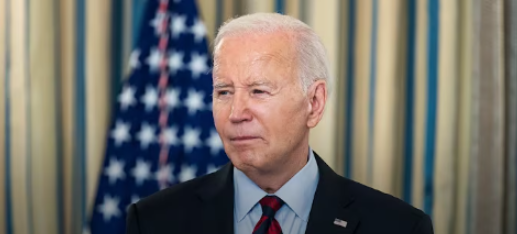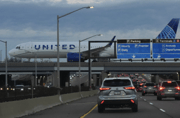Shocking court decision shakes up Biden’s fee crackdown—are late charges quietly making a comeback?
- Replies 1
A new ruling just put the brakes on a high-profile policy aimed at protecting consumers from growing credit card costs.
What was meant to be a win for everyday Americans is now being reversed in court—with consequences that could land directly on your next statement.
Let’s break down what this means for your wallet.
A US judge has officially thrown out a rule that would have capped credit card late fees at $8—a move previously celebrated by consumer advocates.
The cap, introduced in March 2024 by the Consumer Financial Protection Bureau (CFPB), was part of Biden's crackdown on consumer “junk fees” by significantly cutting the average $32 late fee charged by major banks.

But US District Judge Mark Pittman, a Trump appointee in Fort Worth, ruled that the cap violates the Credit CARD Act of 2009, which requires that fees be “reasonable and proportional” to the violation.
According to Pittman, the $8 cap didn’t meet that legal standard.
The ruling followed a legal challenge by a coalition of business and banking groups, including the US Chamber of Commerce and the American Bankers Association.
The plaintiffs argued the CFPB was overstepping its authority and that the cap would ultimately hurt consumers by shifting costs elsewhere.
Their concern? That lower fees wouldn’t reduce financial burden—but would instead prompt credit card companies to raise rates or cut perks to recover lost revenue.
The judge agreed, putting a stop to the policy just weeks before it was set to take effect.
Not everyone is cheering. Consumer advocates, like the Consumer Federation of America (CFA), have long supported the cap as a way to fight back against excessive fees that often hit low-income or financially vulnerable cardholders.
CFA Director Adam Rust previously stated the rule would “It closes the loophole that permitted this form of price-gouging” and bring fairness to a system where late fees can spiral quickly.
He also pushed back against the idea that benefits like cash back or air miles would disappear under the cap, noting that those perks are generally tied to customers with strong credit scores—not those most impacted by late fees.
Read More:

Have you been hit with a credit card late fee recently? Do you think this ruling protects consumers—or gives banks the upper hand? Share your thoughts in the comments below. Let’s talk strategy, fairness, and how to protect our wallets in this ever-changing economy.
What was meant to be a win for everyday Americans is now being reversed in court—with consequences that could land directly on your next statement.
Let’s break down what this means for your wallet.
A US judge has officially thrown out a rule that would have capped credit card late fees at $8—a move previously celebrated by consumer advocates.
The cap, introduced in March 2024 by the Consumer Financial Protection Bureau (CFPB), was part of Biden's crackdown on consumer “junk fees” by significantly cutting the average $32 late fee charged by major banks.

A new ruling just put the brakes on a high-profile policy aimed at protecting consumers from growing credit card costs. Image Source: CBS Mornings / YouTube
But US District Judge Mark Pittman, a Trump appointee in Fort Worth, ruled that the cap violates the Credit CARD Act of 2009, which requires that fees be “reasonable and proportional” to the violation.
According to Pittman, the $8 cap didn’t meet that legal standard.
The ruling followed a legal challenge by a coalition of business and banking groups, including the US Chamber of Commerce and the American Bankers Association.
The plaintiffs argued the CFPB was overstepping its authority and that the cap would ultimately hurt consumers by shifting costs elsewhere.
Their concern? That lower fees wouldn’t reduce financial burden—but would instead prompt credit card companies to raise rates or cut perks to recover lost revenue.
The judge agreed, putting a stop to the policy just weeks before it was set to take effect.
Not everyone is cheering. Consumer advocates, like the Consumer Federation of America (CFA), have long supported the cap as a way to fight back against excessive fees that often hit low-income or financially vulnerable cardholders.
CFA Director Adam Rust previously stated the rule would “It closes the loophole that permitted this form of price-gouging” and bring fairness to a system where late fees can spiral quickly.
He also pushed back against the idea that benefits like cash back or air miles would disappear under the cap, noting that those perks are generally tied to customers with strong credit scores—not those most impacted by late fees.
Read More:
- Trump makes a bold move at the DOJ—what it means for Biden-era officials
- Legal expert analyzes challenges facing Trump's executive orders
Key Takeaways
- A federal judge has overturned a rule that capped credit card late fees at $8, which was introduced as part of President Biden's efforts to reduce "junk fees."
- US District Judge Mark Pittman found the regulation to be illegal, citing that it violated the Credit CARD Act of 2009 by preventing card issuers from charging fees that are "reasonable and proportional to violations."
- A coalition of business and banking groups successfully argued that the fee cap was overstepping authority, was not in line with Congress' intent, and could lead to costs being passed onto cardholders who pay on time.
- The ruling has been described as "a win for consumers and common sense" by the coalition, despite some consumer advocates previously speaking in favour of the cap, saying it would inject fairness in the system and not affect credit card benefits like air miles or cash back.
Last edited:






